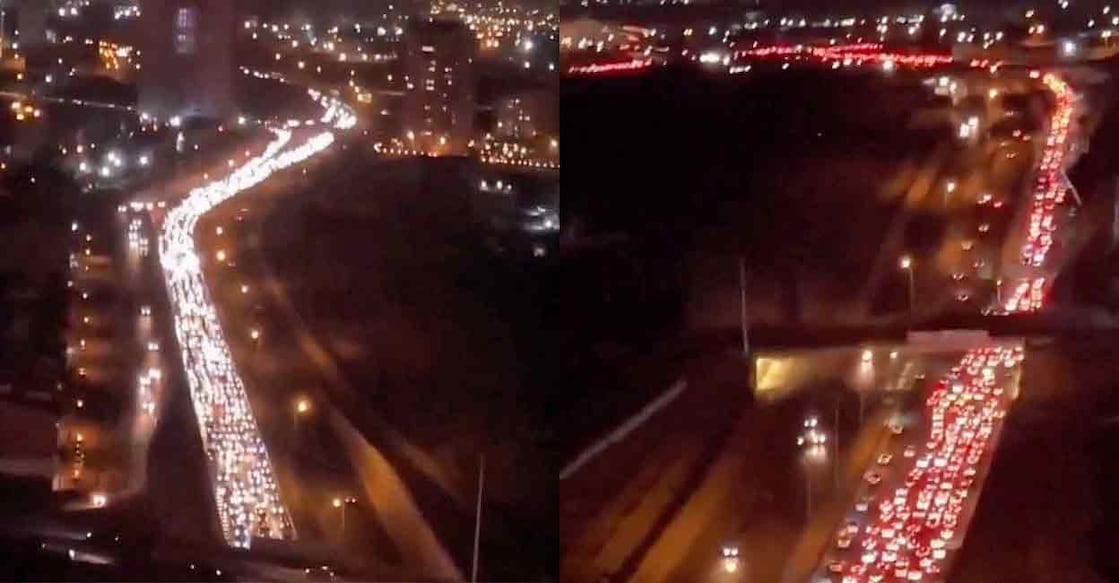Israel–Iran conflict: Indians moved from Tehran after bombing injures 5 students

Mail This Article
Tehran/New Delhi: Thousands of Indian students stranded in Iran have urgently appealed for repatriation as tensions between Iran and Israel escalate, triggering safety concerns and campus shutdowns. While many Indians remain stranded in Tehran due to heavy bombing, hundreds of Indian students were moved on Monday to safer zones like Qom, 140 km to the south of the capital city.
"Indian students in Tehran have been moved out of the city for reasons of safety, through arrangements made by the Embassy. Other residents who are self-sufficient in terms of transport have also been advised to move out of the city in view of the developing situation. Separately, some Indians have been facilitated to leave Iran through the border with Armenia," Ministry of External Affairs said in a release on Tuesday.
Israel has warned hundreds of thousands of people to evacuate the middle of Iran's capital as Israel's air campaign on Tehran appeared to broaden on the fourth day of an intensifying conflict. The Iranian airspace has been shut for commercial flights.
The MEA confirmed that the Embassy is in regular contact with students and is exploring relocation options within Iran. According to The Times of India, approximately 10,000 Indians, including about 6,000 students, are currently in Iran.
In response to the escalating conflict, around 600 students have been moved from Tehran, a key target of Israeli strikes, to the relatively safer city of Qom, which houses over 60 per cent of the international student population in Iran. Meanwhile, about 110 Indian students from Urmia (situated near the borders of Iran with Turkey and Iraq) reached the Armenian border on Monday evening and are expected to be airlifted on Tuesday.
Explosions have rocked Tehran since the early hours of Friday, forcing students into makeshift shelters. “I woke up at 2.30 am to loud explosions and rushed to the basement. We haven’t slept since,” said Imtisal Mohidin, a 22-year-old MBBS student at Shahid Beheshti University, told ANI. He is among the 350 Indian nationals currently enrolled at the Tehran-based institution, which has temporarily suspended classes. The University, known for its affordable medical programmes, was directly impacted when three of its professors, nuclear scientists, were killed in an Israeli strike. The attack was part of Israel’s “Operation Rising Lion,” targeting key Iranian nuclear and military facilities. Iran responded with waves of drones and ballistic missiles targeting Israeli sites.
A student from Urmia University of Medical Sciences told The Week that five Indians, two Lebanese, one Australian and one Nigerian student were injured when an Israeli missile struck a residential building just one block away from the international student dormitories. After the incident, the university arranged to relocate students to a safer location in northern Iran. The embassy organised buses to move them. Temporary housing has also been arranged through NGOs, providing students with basic facilities as the situation evolves.
Around 1,500 Kashmiri students are studying at various Iranian universities. According to Syed Hakim Raza, President of the Indo-Iran Chamber of Commerce & Industry, around 150–200 individuals from Karnataka alone—including students, families, and business travellers—are currently in Iran, mainly in Qom, Tehran, and Mashhad (a city in northeast Iran, known as a place of religious pilgrimage).
The Indian Embassy in Tehran has issued a series of advisories asking Indian nationals and persons of Indian origin to stay indoors and follow official updates. A Telegram channel has been created to provide real-time alerts, and multiple emergency helplines have been activated.
Jammu and Kashmir Chief Minister Omar Abdullah said he had spoken to External Affairs Minister S Jaishankar, who assured him that efforts were underway to ensure the safety of students from the Union Territory. The Karnataka government has also reached out to the MEA, requesting the safe return of students. At least nine students from the state are currently enrolled at Shahid Beheshti Medical University.
Measures for Indians in Israel
In parallel, the Indian Embassy in Tel Aviv has also issued a safety advisory to Indian nationals in Israel, following the escalation. The Embassy has contacted community members, including caregivers, workers, students, businesspersons and tourists.
“All Indian nationals are once again advised to stay vigilant, strictly avoid unnecessary movement and follow Israeli Home Front Command protocols,” the Embassy said. Regular communication is being maintained with Israeli authorities amid a nationwide emergency and airspace closure.
24x7 control rooms and helplines
To coordinate efforts across both Iran and Israel, the MEA has set up a 24x7 Control Room in New Delhi:
Control Room (MEA, New Delhi):
• Toll-free: 1800 118 797
• Landlines: +91-11-23012113, +91-11-23014104, +91-11-23017905
• WhatsApp: +91 9968291988
• Email: situationroom@mea.gov.in
Indian Embassy in Tehran (Iran):
• Call only: +98 9128109115, +98 9128109109
• WhatsApp: +98 9010445557, +98 9015993320, +91 8086871709
• Regional contacts:
– Bandar Abbas: +98 9177699036
– Zahedan: +98 9396356649
• Email: cons.tehran@mea.gov.in
Indian Embassy in Tel Aviv (Israel):
• 24x7 helplines: +972 54-7520711, +972 54-3278392
• Email: cons1.telaviv@mea.gov.in

